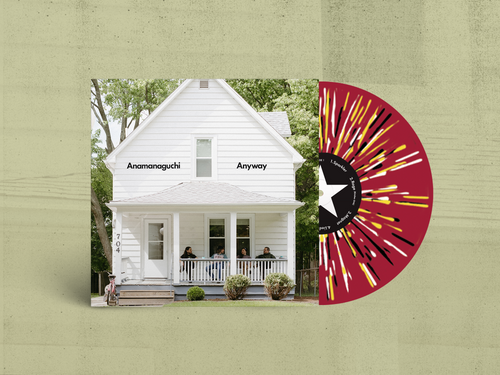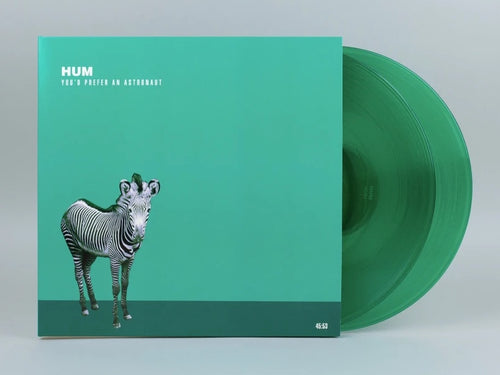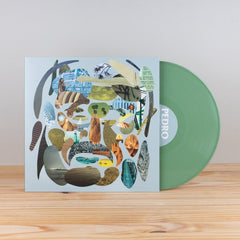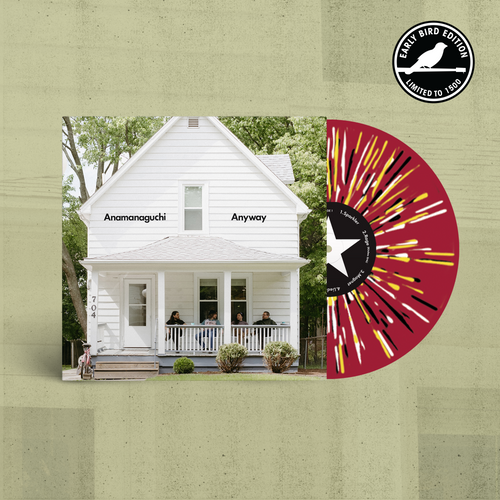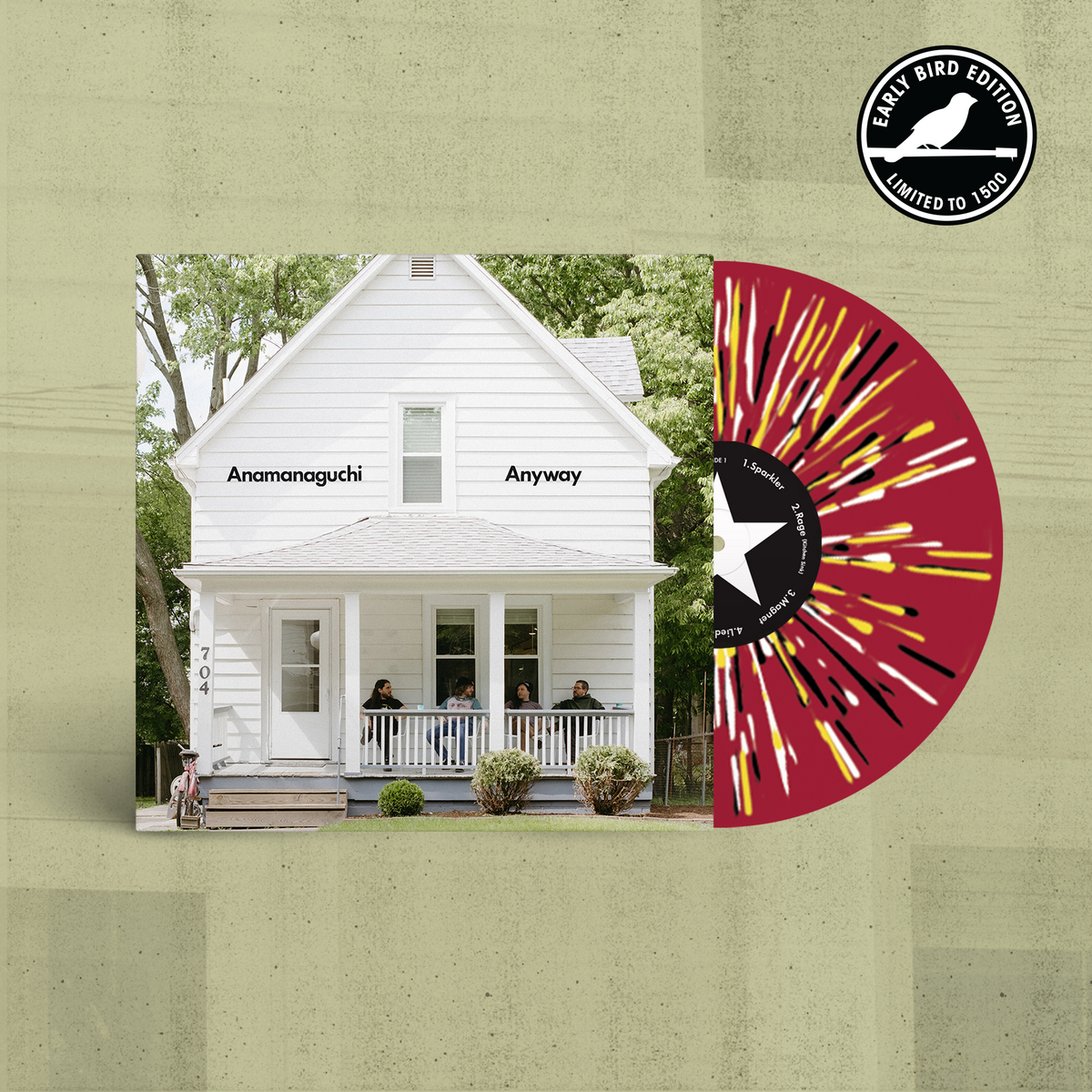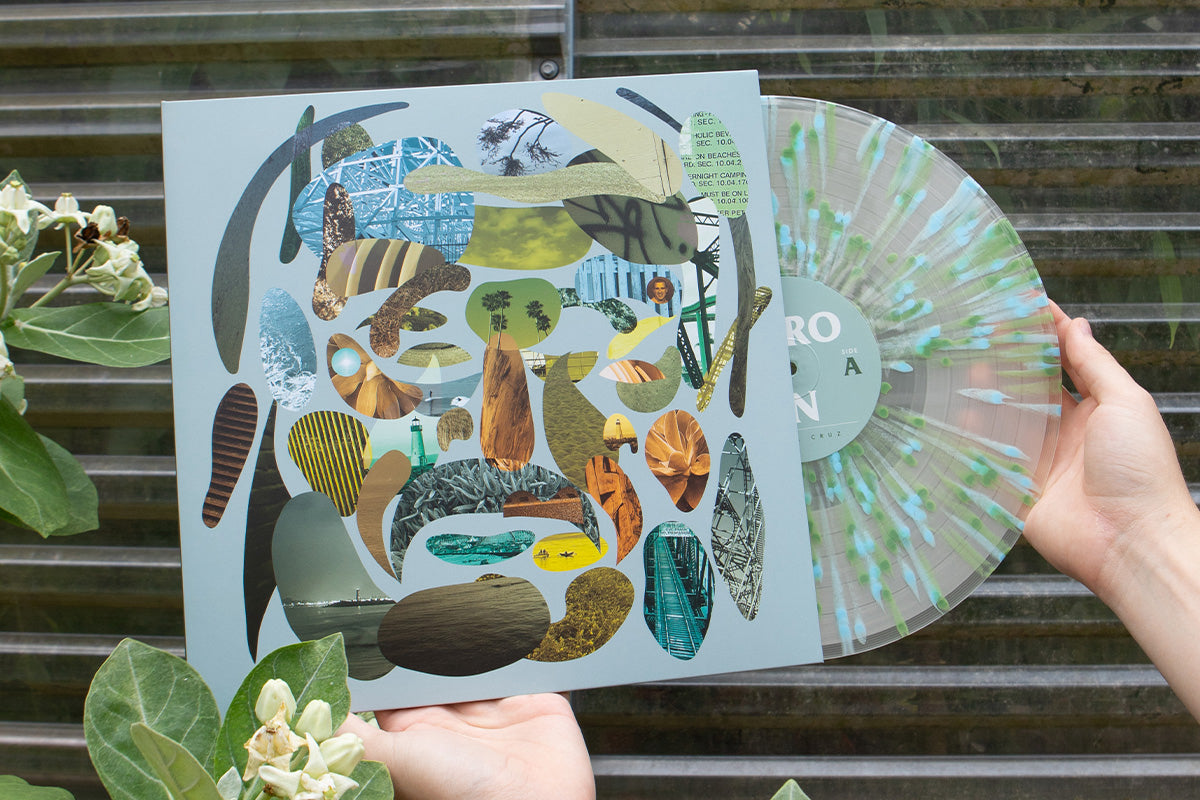
"Bazan turns a simple reflection into a revelation." - NPR
Today, David Bazan shares the rawest, most affecting and affirming Pedro the Lion album to date. Santa Cruz is the third stop on a planned five-album arc charting the places of Bazan’s youth, which began with the release of Phoenix in 2019 followed by 2022's Havasu.
Santa Cruz follows up where its predecessors left off — rippling with the anxious excitement of teenage awakening as we track a 13 year-old Bazan through the cusp of adulthood. His most fraught and frank album yet, Santa Cruz advances David Bazan's charged chronicles of the past and the ways it shapes and misshapes the present.
Get your limited edition copy of Santa Cruz on Cloudy Clear w/ Sky Blue & Pine Forest Green Splatter vinyl (pictured above) today and listen to the record below. The full band hits the road in less than two weeks, touring across North America with support from Squirrel Flower (solo), Flock of Dimes and Danielle Durack - all tickets on sale now.
Santa Cruz begins with a prayer that feels like a dirge, a synth-led funeral march to another town where David knows no one. “If I lay it down/And I keep my eyes on you,” he moans, steeling himself through self-sacrifice. “It’ll all work out.” But when he arrives in Santa Cruz to begin eighth grade, the self-flagellation comes quickly, David lecturing himself for the lameness of the neon-green backpack he picked out in Phoenix and the Christian rock that is his lifeblood. For decades now, he's been known for his music’s deliberate pace, often linked to slowcore. Here, however, he renders detailed images in rapid-fire waves, his voice stapled atop the quick rhythm like never before in order to capture his nerves as he learns there might be life outside of his family’s Christian fiefdom—apocrypha, whispers of sex, mere games of ping-pong.
But every time stability seems to appear during these 11 songs, the family is off to another job. By ninth grade, amid the metronomic mile markers of “Tall Pines,” they are headed for little Paradise, where there are dreams of drum sets and clandestine shirtless make-out sessions when his parents are away. With the stirring “Don’t Cry Now,” as close to a dance track as he's ever made, they’re bound for Seattle, where David found his own fledgling music scene, deepening friendships, and the dawn rays of what would become his future.
When his family splits for California yet again, he stays behind, living with a friend just so he can graduate from the place where he’s become so invested in drums, guitars, and songs that he’s barely maintained his grades. The day after he graduates, he stuffs everything he owns into plastic garbage bags and heads south with his mom, returning to the family flock, now in Modesto. “You sweetly slept in the passenger seat/I gripped the wheel, messed up inside,” he sings of his mother during “Parting,” his voice a true-to-life admixture of love and longing, of devotion and doubt.
When David began considering the times and the songs that would soon become Santa Cruz, he thought about fictionalizing it all. He could break with the narratives of Phoenix and Havasu to give himself and everyone else in the story some critical distance. These events are not old news, after all, and he worried about untangling the active threads of the rather recent past from right now. And would it seem like he was scolding his parents, two people trying to raise kids the best they knew how? The result does not feel like blame. It feels like redemption, like finding the way forward for yourself, however it happens. “Your grief is not a burden,” he sings in one of the final verses. “It’s energy.” And it’s currently powering one of the most real, riveting, and powerful song cycles in memory, happening right now.

